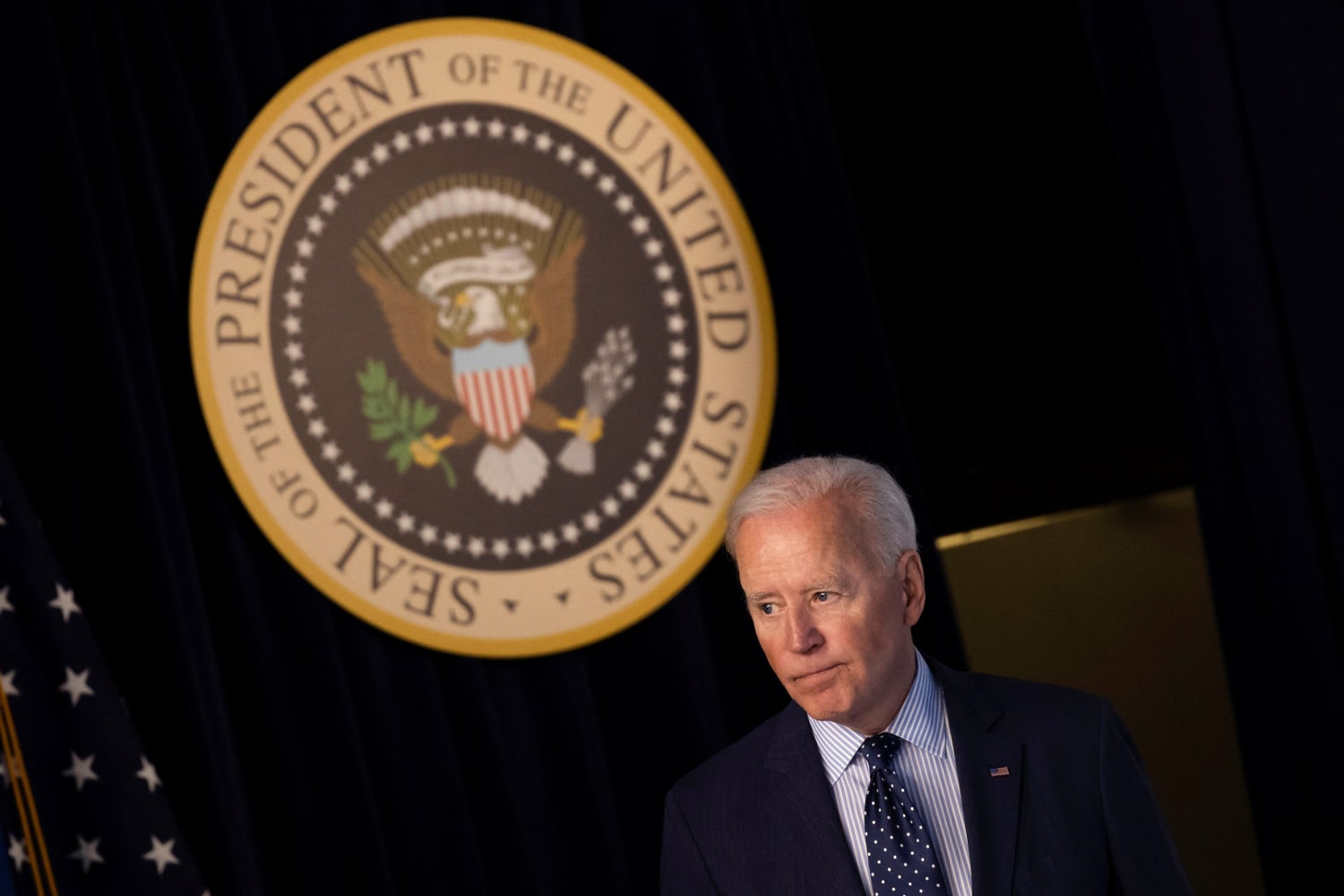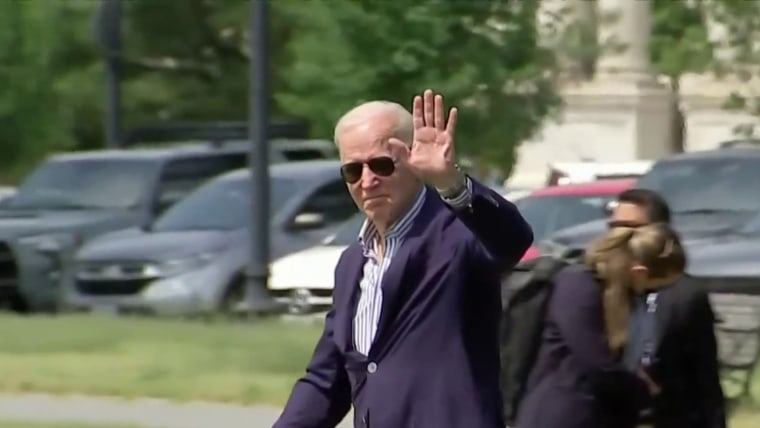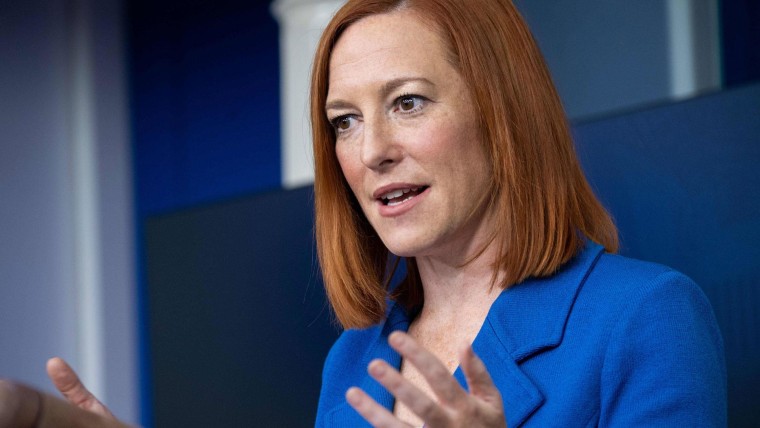WASHINGTON — As public pressure to uncover the origin of Covid-19 gained momentum, President Joe Biden did what many of his predecessors have done in the face of a political firestorm: he ordered a review.
When a powerful wing of his own party demanded he back an expansion of the Supreme Court, he responded by establishing a commission to study changes to that institution.
And while he promised as a candidate to ban new oil and gas permits on public lands, as some of his key supporters advocated, Biden has slow-walked that pledge with a temporary halt on new leases, a suspension of his predecessor’s last-minute leases in a sensitive Arctic refuge and an Interior Department review of the issue announced nearly five months ago.
“We’re going to review and reset the oil and gas leasing program,” Biden said at the time.
The bureaucratic review of major policies or events has been a go-to presidential tactic since the summer of 1953, when President Dwight Eisenhower tackled a political divide over how to contend with Soviet power by convening an extensive internal analysis of the issue. Presidents ever since have parked politically-charged issues in a government process in hopes that the passage of time would take the sting out of a heated debate or allow them to mount support for their preferred position.
Biden appears to have reached for the tool at a rate that outpaces his predecessors.
Halfway through his first year in office, roughly a dozen politically contentious policies remain under review — from U.S. tariffs on Chinese goods and arms sales to the Middle East to whether former President Donald Trump should receive intelligence briefings.
“Biden is probably doing this more than other presidents have, but it’s the same approach,” said presidential historian Michael Beschloss. “And the approach is, you take an issue that is very politically divisive and you try to cool it off by taking some time and bringing in some experts.”
“This is something that presidents do all the time,” he added, “and it has actually worked.”
The White House declined to comment for this story.
Not all reviews carry equal weight. There are always some routine policy re-assessments when administrations change, and presidents tend to want to put their own imprints on the government’s approach. New presidents may seek to reverse or alter some of their immediate predecessor’s policies, having pledged to do so as a candidate, but find once in office that it’s more difficult than the stroke of a pen, or that the policy in question has merit.
Biden, for instance, was sharply critical of Trump’s tariffs on Chinese goods, but has kept them in place for now — under review.
Major reviews pursued for political cover typically have been related to controversial issues that tend to be of broad interest across the country: How to contend with Soviet power in the 1980s or the makeup of the Supreme Court now.
“Commissions can serve both political and policy purposes by either giving sanction to the course a president already wants to pursue, or genuinely introducing new ways of thinking about a familiar problem,” said presidential historian Jon Meacham.
When President Ronald Reagan couldn’t get Congress to approve an intercontinental ballistic missile he wanted, he created a bipartisan commission to review the issue in hopes that removing politically-charged words from the debate and removing his effort from the spotlight for a bit would generate support for it, particularly among Democrats.
“And it worked,” recalled former Reagan chief of staff Ken Duberstein, noting that Reagan got congressional approval after that review.
Former President George H.W. Bush similarly tried to manage some differences within his own Republican Party over his predecessor’s handling of the Soviet Union. Some in the GOP thought Reagan went too far in trusting Soviet leader Mikhail Gorbachev while others thought the approach was fruitful. By the end of the review, known as “The Pause,” Bush essentially followed Reagan’s policy as he wanted to do all along, according to Beschloss.
But presidents, particularly Biden, have increasingly put more issues with smaller political constituencies under review.
Biden promised during the campaign to roll back Trump’s hardline actions on Cuba, but he hasn’t taken any steps to do so, and his administration’s Cuba policy has been under review since January. While America’s engagement with Cuba is not a top concern across the country, the issue carries significant weight in political battleground Florida and maintaining a hardline U.S. position is of top importance to key Democrats, including Senate Foreign Relations Committee Chairman Bob Menendez.
For Biden, some reviews have also served as a policy layaway of sorts, allowing him to delay making a clear decision on an issue that’s likely to draw political backlash at a time when he’s seeking bipartisan support for other parts of his agenda.
Biden has chosen to put U.S. policy on the detention facility at Guantanamo Bay under review, for example, and not made a push to close it. That’s in contrast to former President Barack Obama, who came into office and immediately, without a review, announced his decision to close Guantanamo by the end of his first year in office — an effort that was ultimately crippled by bipartisan political resistance.
Some of Biden’s reviews have been completed. Others have persisted for months. And new ones continue to be added, including Biden’s announcement last week of a 90-day review of U.S. intelligence about possible Covid-19 origins.
The White House said the president had been quietly looking into the issue for months, but Biden has said publicly that in his two-hour phone call with Chinese President Xi Jinping in February, he did not raise concerns about how China may have misled the world about what it knew in the early days of the virus. And White House officials have not cited determining the virus’s origins as a top issue in discussions with Chinese officials.
So the timing of the review raised eyebrows because it coincided with growing criticism that Democrats were ignoring the theory that the virus accidentally escaped from a lab in Wuhan, China.
The Supreme Court Commission, which Biden created by executive order, is tasked with looking at the size of the court, the body’s rules and practices and how long justices should serve — currently they are on the bench for life once confirmed, unless they choose to retire. The commission has 180 days to come up with a report, which is expected in November.
“On the stuff like the Supreme Court, you can tell that he’s uncomfortable with it and hoping the ultimate temperature of the whole thing drops,” said one person close to the White House.
One review Biden doesn’t plan to order, according to the White House: A presidential commission to investigate the attack on the U.S. Capitol on Jan. 6, if Congress fails to create one.
Source: | This article originally belongs to Nbcnews.com











